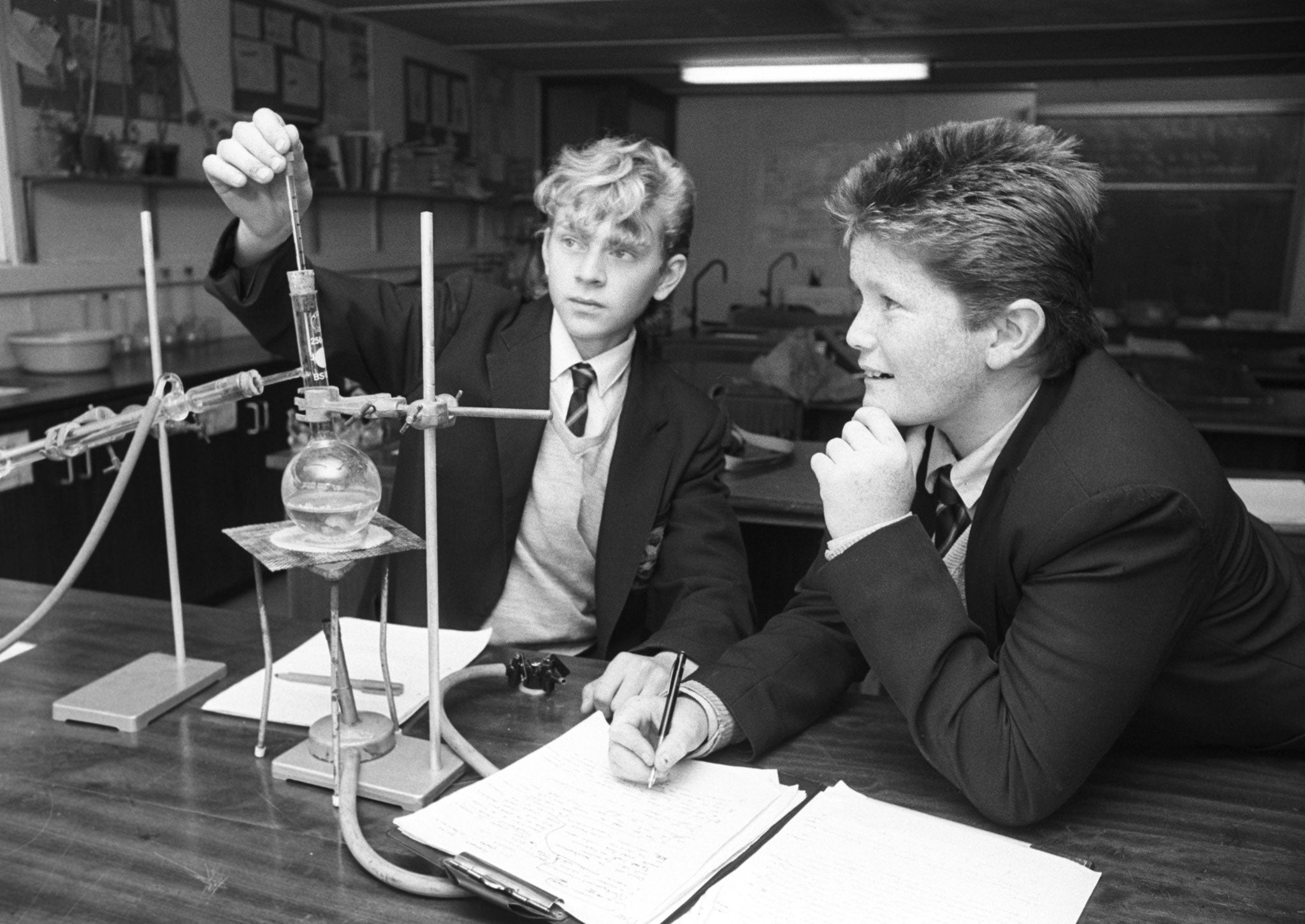Why practical experiments must remain part of science A-levels
Nothing beats making your own observations of the world

Your support helps us to tell the story
From reproductive rights to climate change to Big Tech, The Independent is on the ground when the story is developing. Whether it's investigating the financials of Elon Musk's pro-Trump PAC or producing our latest documentary, 'The A Word', which shines a light on the American women fighting for reproductive rights, we know how important it is to parse out the facts from the messaging.
At such a critical moment in US history, we need reporters on the ground. Your donation allows us to keep sending journalists to speak to both sides of the story.
The Independent is trusted by Americans across the entire political spectrum. And unlike many other quality news outlets, we choose not to lock Americans out of our reporting and analysis with paywalls. We believe quality journalism should be available to everyone, paid for by those who can afford it.
Your support makes all the difference.Like most other children, when I was a boy I was curious about how things worked and wanted to understand the world around me. Parents and teachers and books and now the web of course would all give me information, but what really mattered was finding out things for myself. Nothing beats making your own observations of the world or doing your own experiments. That is how science works and is probably why I am a scientist today.
Given that experimentation is the very heart of science it seems perverse that Ofqual are planning to strip all assessment of a student's experimental skills out of their final A-level grade. Ofqual's argument is that current assessment arrangements are not good enough. They claim that the sort of experiments that all schools can do is very narrow and that assessment of the results is not reliable enough. They probably have a point.
The science education community, on the other hand, are concerned that by stripping practical science skills out of the final A-level mark, Ofqual will be sending out the message that these skills are not important. In an era of endless targets, with league tables being produced to measure the achievement of those targets, there is more than just a suspicion that 'what gets measured, gets done'. And that is probably right too.
But both sides in this argument do agree on one thing - the immense value of practical skills in science. An aspiring scientist or a pupil who wants to know what science is who cannot recognise the essential nature and value of experimentation is like an aspiring chef who cannot cook. It simply does not make sense.
The fact that our education system cannot currently accommodate doing and assessing real science, or recognise the value of students doing experiments and making scientific observations rather than just reading about it in books or on the internet, is disappointing. But it is absolutely no reason just to give up. If some of our schools cannot teach or assess practical science then we should give the teachers, resources and the where with all to do so.
Michael Gove has spoken of an ambition to raise standards in state schools so that they match the best fee paying schools. He speaks of greater fairness and ambition for all young people. However, in state secondary schools in 2011/12, a Science Community Representing Education (SCORE) survey of 448 secondary schools found funding to support practical work in science varied from 75p per student to £31.25. The highest-spending independent school invested £83.21 per student. I do not think that is fair and if the Secretary of State wants to convince me that he is making progress he needs to correct this inequality.
The best teachers in well equipped schools are helping to producing outstanding scientists - few countries can match the UK for science. But imagine how good we could be if we were capturing the best talent no matter where they lived or went to school or whether they were rich or poor.
The current stand-off between the science community and Ofqual is mostly a disagreement based in the here and now. There are problems in our practical science education system, which both sides recognise - the difference in opinion is how we make the best of a less than ideal situation. This stand-off has to be resolved if our science teaching is to be of the standard our children deserve. I believe that the principle of recognising the great importance of practical work should win out over the shorter term concerns about the current quality of assessment.
But surely we should be aiming higher. Do we want an education system that will equip England with future generations of scientists, innovation entrepreneurs and people with a scientific literacy that will equip them for dealing with the policy making decision that they will have to take? If we do, we need a new vision for science education...and that has to include a major emphasis on students learning for themselves through experimentation and scientific observation.
Join our commenting forum
Join thought-provoking conversations, follow other Independent readers and see their replies
Comments